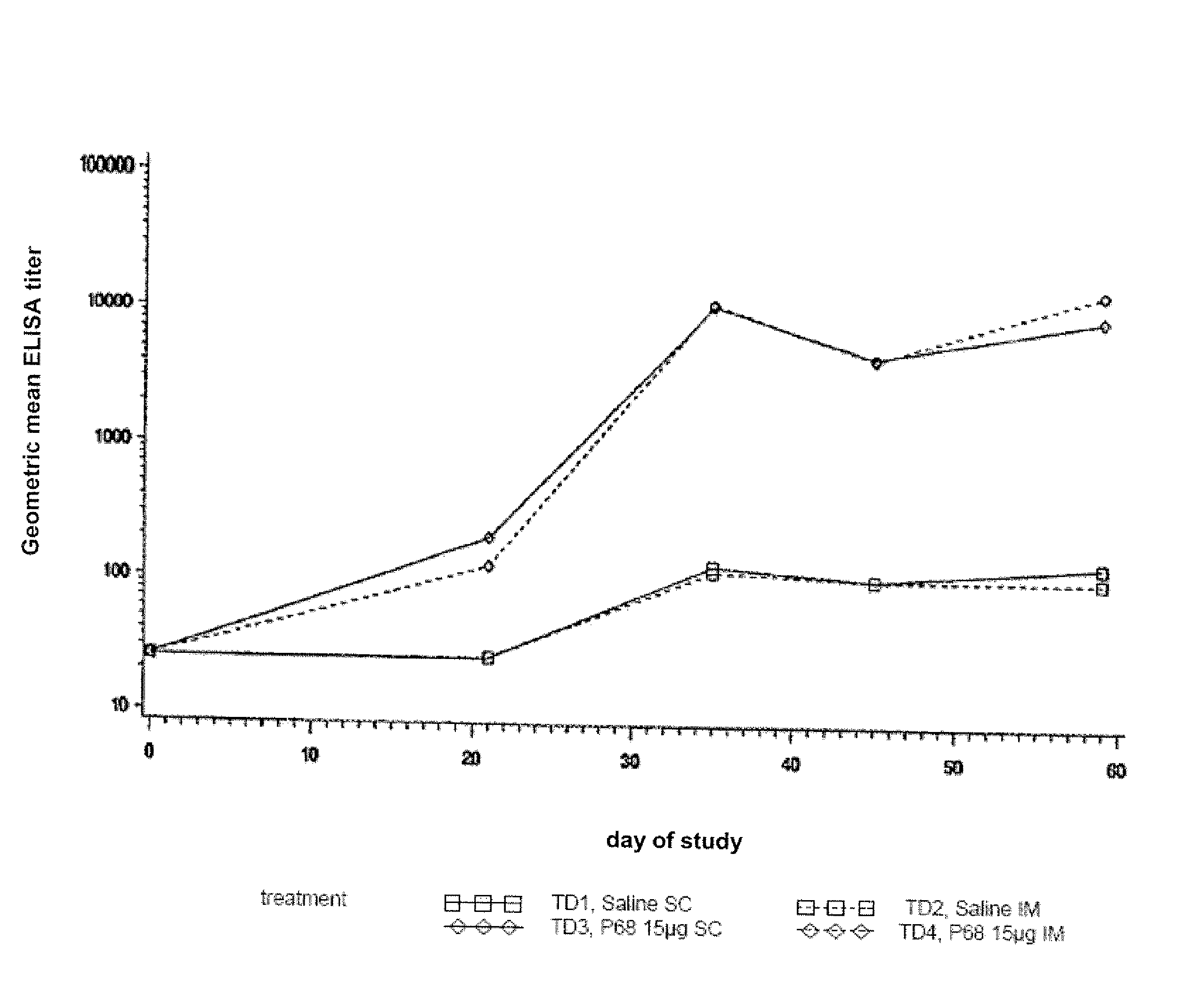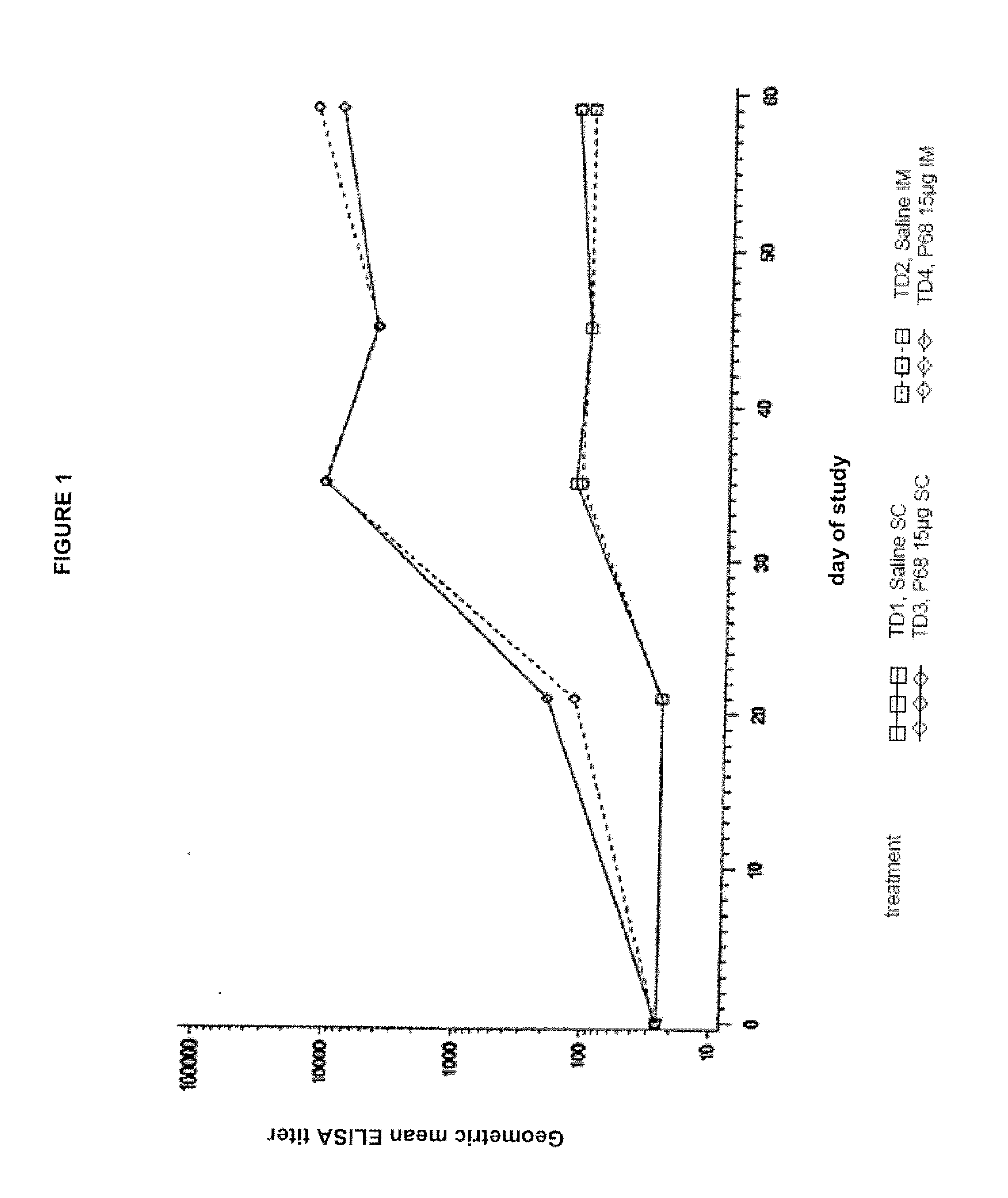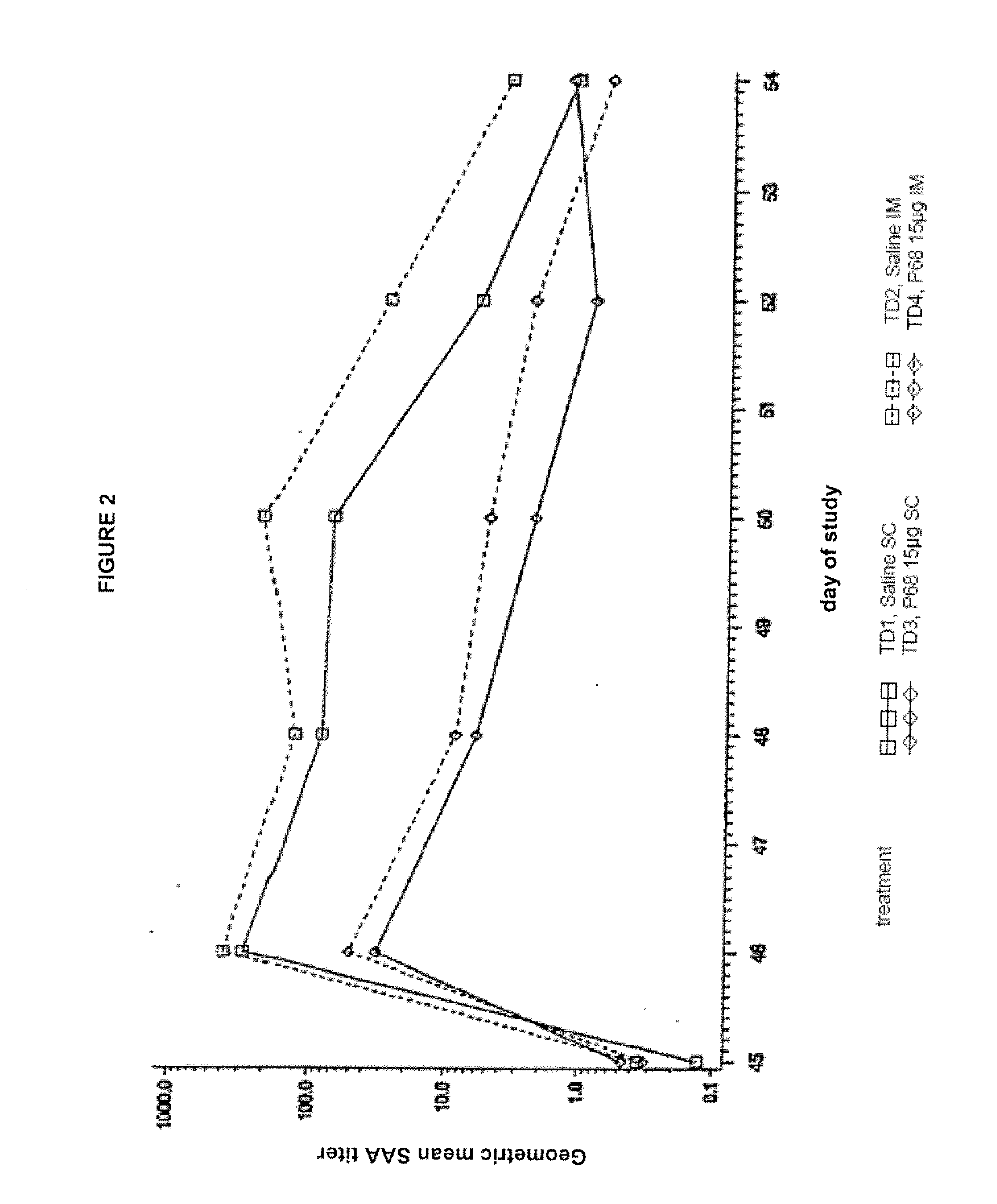Canine vaccines
a technology of canine vaccines and vaccines, applied in the field of canine vaccines, can solve the problems of no effective combination vaccine comprising l, failure of one or more antigens in a combination composition to maintain, and heart failur
- Summary
- Abstract
- Description
- Claims
- Application Information
AI Technical Summary
Benefits of technology
Problems solved by technology
Method used
Image
Examples
example 1
Canine Bordetella p68 Recombinant Antigen Dose Titration Study
Vaccine:
[0096]The experimental vaccine antigen was a recombinant p68 outer membrane protein (SEQ ID NO: 1) of B. bronchiseptica produced by E. coli strain LW68. The vaccine contained varying levels of SDS (sodium dodecyl sulfate) solubilized p68, adjuvanted with 50 μg of QAC (Quil A / 50 μg cholesterol) in a 1 mL dose.
Challenge Material:
[0097]An aerosol of Bordetella bronchiseptica, dog isolate #85B, passage #3, lot #051597, was used as the challenge material. The mean plate count was 1.59×108 CFU / ml.
Animals:
[0098]Sixty male and female canine pups were randomly allocated to one of six treatment groups (10 pups per group). Pups were bled and tracheal swabs were taken 41 days prior to the first vaccination and again 28 days prior to first vaccination and any seropositive or culture positive animals were removed from the study.
[0099]Animals were randomly assigned to treatments and rooms according to a randomized complete block...
example 2
Canine Bordetella p68 Immunogenicity Study
Animals
[0134]Forty-five male and female mixed breed dogs were purchased. A MLV parvovirus vaccine was administered to all puppies on the day the puppies arrived at the study site. No other vaccines, other than the experimental products, were administered to the puppies during the study. Dogs were approximately 9 weeks of age (±1 week) on Day 0 (day of first vaccination).
[0135]Dogs were kept in an isolation facility necessary to prevent exposure to Bordetella and other canine pathogens prior to challenge. After aerosol challenge with Bordetella, isolation procedures were continued to prevent exposure to other canine pathogens.
Vaccines
[0136]Sterile saline was used as a placebo vaccine in treatment groups T01 and T02. Canine recombinant p68 Bordetella Bronchiseptica Vaccine was used in treatment groups T03 and T04. The structural gene of the p68 antigen was cloned in Escherichia coli and expression of the gene was regulated by a temperature sen...
example 3
Six Month Duration of Immunity Study of Canine Bordetella p68 Vaccine
Animals
[0180]Ninety male and female mixed breed dogs were purchased and the majority of puppies were 9 weeks (±1 week) on the day of first vaccination.
[0181]A MLV parvovirus vaccine was administered to dogs upon arrival at the study site. To be eligible for the study, animals were determined to be negative to B. bronchiseptica by tracheal swab and agglutination titer. No vaccines, other than the experimental products, were administered during the study.
[0182]Dogs were kept in an isolation facility necessary to prevent exposure to B. bronchiseptica and canine pathogens prior to challenge. After aerosol challenge with B. bronchiseptica, isolation procedures were continued to prevent exposure to other canine pathogens.
Vaccines
[0183]Sterile saline was used as a placebo vaccine in treatment groups T01 and T02. Canine recombinant p68 Bordetella Bronchiseptica Vaccine was used in treatment groups T03 and T04. The structur...
PUM
| Property | Measurement | Unit |
|---|---|---|
| molecular weight | aaaaa | aaaaa |
| optical density | aaaaa | aaaaa |
| pressure | aaaaa | aaaaa |
Abstract
Description
Claims
Application Information
 Login to View More
Login to View More - R&D
- Intellectual Property
- Life Sciences
- Materials
- Tech Scout
- Unparalleled Data Quality
- Higher Quality Content
- 60% Fewer Hallucinations
Browse by: Latest US Patents, China's latest patents, Technical Efficacy Thesaurus, Application Domain, Technology Topic, Popular Technical Reports.
© 2025 PatSnap. All rights reserved.Legal|Privacy policy|Modern Slavery Act Transparency Statement|Sitemap|About US| Contact US: help@patsnap.com



